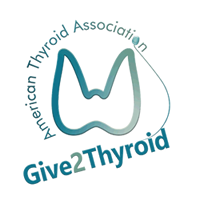The patients were randomly assigned in a 4:1 ratio to receive radioactive iodine either based on their RAIU and serum thyroglobulin levels or as a fixed dose of 3.7 GBq (100 mCi). Those assigned to receive radioactive iodine therapy based on their RAIU and serum thyroglobulin levels were separated in four groups and took a radioactive iodine dose of 1.1, 1.85, 3.7, or 5.55 GBq based on the higher result of either the uptake (≤2%, 2–5%, 5–15%, and >15%) or thyroglobulin level (≤2 ng/mL, 2–5 ng/mL, 5–10 ng/mL, and >10 ng/mL). A total of 58 patients received a fixed radioactive iodine dose, while 52, 45, 57, and 53 patients received a calculated radioactive iodine therapy dose based on their RAIU/thyroglobulin levels. A complete response to the radioactive iodine therapy was defined as a serum thyroglobulin ≤1 ng/mL and the absence of visible RAIU after thyroid hormone withdrawal assessed six months or more (average of 12 months) after the radioactive iodine therapy.
A higher percentage of patients achieved a complete response to the radioactive iodine therapy in the calculated group than the fixed dose group (89% vs. 69%) with a similar response in the four RAIU/ thyroglobulin-guided therapy subgroups. Additional radioactive iodine therapy was needed for less patients in the RAIU/thyroglobulin-guided therapy group than in the fixed-dose group (1% vs. 8%). Overall, a similar proportion of patients in the RAIU/ thyroglobulin-guided and fixed-dose treatment groups had side effects (21% vs. 33%). However, less patients who received calculated radioactive iodine therapy developed a dry mouth as compared to those who received a fixed radioactive iodine therapy (9% vs. 19%). The risk of experiencing a dry mouth or dry eyes was higher in patients who received a higher radioactive iodine dose.
WHAT ARE THE IMPLICATIONS OF THIS STUDY?
Patients with differentiated thyroid cancer who receive a calculated radioactive iodine therapy dose based on the individual RAIU and serum thyroglobulin level have a higher complete response and success rate and less side effects as compared to patients who receive a fixed radioactive iodine therapy dose. An individualized radioactive iodine therapy administration could contribute to the improvement of care for thyroid cancer patients.
— Alina Gavrila, MD, MMSC




